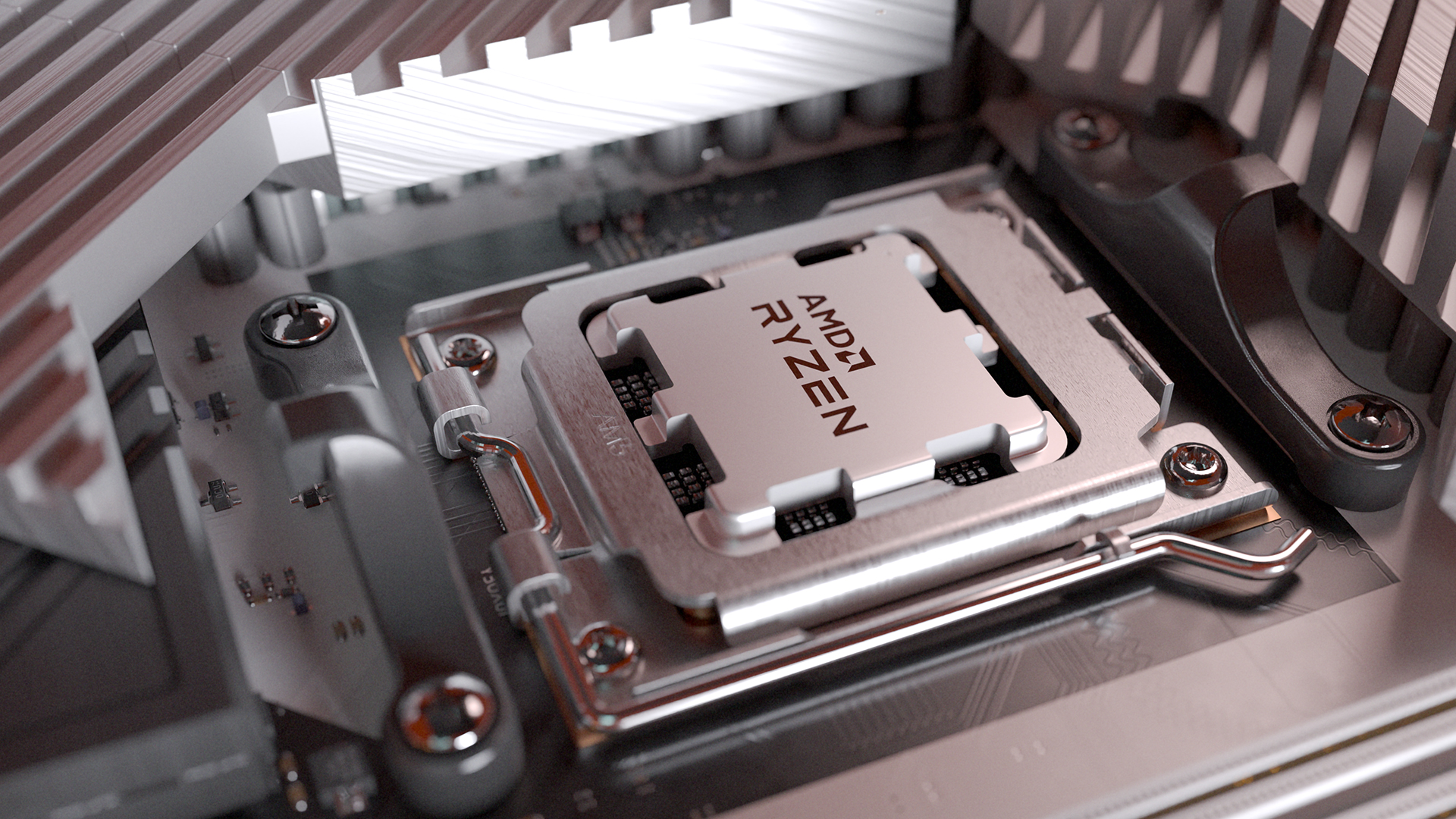AMD prioritising multi-thread over single-thread performance for next-gen Zen 5 CPUs according to new rumours
But don't panic, AMD's new chips will probably be very quick at both.

AMD is on the record scheduling its next-gen Zen CPUs, to be known as the Ryzen 8000 series, for next year. We could even see Zen 5 launch in some form in the first half of 2024. So, it's no surprise that the rumours regarding the new chips are now coming thick and fast.
The latest comes from YouTube channel RedGamingTech and among numerous details perhaps the big stand out is a claim that AMD is prioritising multi-threaded performance over single-threaded.
That's a very broad claim, but the details make sense. The argument goes that server chips are the big money spinner for AMD, not desktop CPUs for we mere gamers. AMD, of course, tends to build a single CPU core design which is rolled out in various configuration across server and client PC, often using exactly the same CPU core chiplets across both platforms, but paired with additional application-specific chiplets that offer IO, memory controllers and other features suited to the given remit.
Now, given the far greater financial rewards of server chip sales for AMD, RedGamingTech's claim is that Zen 5's architecture has been tilted slightly in favour of server performance over client PC performance. And server performance is generally all about multi-threaded performance.
The consequence? The gap between the maximum single-core clock speed and maximum multi or all-core clockspeed has been narrowed for Zen 5 compared to previous Zen chips.
The immediate implication is that single-thread frequencies may have suffered. If that's the case, it does not appear to be by much. RedGamingTech claims that "late engineering samples" of what the channel claims to be the Ryzen 9 8950X are hitting 5.6GHz. That's just 100MHz down on the existing Ryzen 9 7950X.
And, of course, we're talking engineering samples, not final silicon. So, that frequency could yet improve.
Keep up to date with the most important stories and the best deals, as picked by the PC Gamer team.
At the same time, RedGamingTech has some claimed information regarding Zen 5's IPC or instructions per clock performance, which is the measure of the performance of a single software thread per clock cycle. In other words, independent of clock speed.
Earlier info from competing rumour monger Moore's Law is Dead revealed a purported AMD internal slide showing Zen 5's IPC improving by 10 to 15%, which was a little disappointing.
RedGamingTech is now claiming the slide in question used the narrow measure of SpecInt to come up with those IPC numbers, and that broader IPC gains across multiple integer and floating point workloads will likely be 20% or more.
Assuming that Zen 5 does hit similar peak clockspeeds to Zen 4, we're then looking at about 20% more single-thread performance. But the multi-thread performance gains should be bigger given that claim of narrowing the frequency gap between single and multi-threaded loads.
So you could argue that it's more a case of multi-thread performance getting a particularly big boost than single-thread performance suffering. But if this is what AMD is doing, you could also argue that single-thread performance would likely be better still had that been the priority.

Best CPU for gaming: The top chips from Intel and AMD.
Best gaming motherboard: The right boards.
Best graphics card: Your perfect pixel-pusher awaits.
Best SSD for gaming: Get into the game ahead of the rest.
Incidentally, RedGamingTech also has some interesting asides regarding Strix Halo or Sarlack, the mega APU that AMD is rumoured to be working on and which has latrely been rumoured to be delayed until 2025. It's a 16-core chip on the CPU side, but also packs 40 RDNA 3.5-spec GPU compute units and a 256-bit shared memory bus, the latter being very novel for a PC rather than console APU.
For context, an AMD Radeon RX 6750 XT discrete desktop GPU also has 40 compute units, albeit in older RDNA 2 spec. Anyway, RedGamingTech is claiming that Sarlack is indeed delivering comparable performance to an RX 6750 XT paired with a 16-core Zen 5 CPU and doing so for a combined total of 75 to 125W, which is pretty impressive when you consider that AMD's highest performance 16-core desktop CPUs are 170W alone.
Again, this is all rumour. But as the window before a new CPU or GPU launch narrows, the information tends to improve. So, this latest rumour dump is far from guaranteed. But it is intriguing.

Jeremy has been writing about technology and PCs since the 90nm Netburst era (Google it!) and enjoys nothing more than a serious dissertation on the finer points of monitor input lag and overshoot followed by a forensic examination of advanced lithography. Or maybe he just likes machines that go “ping!” He also has a thing for tennis and cars.

